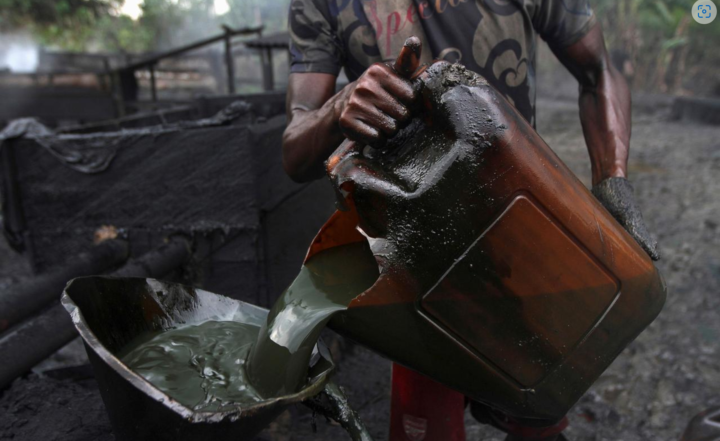Analysts have indicated that Nigeria is aware of the ongoing challenges it faces in addressing crude oil theft. In a report dated November 29 by S&P Global Commodity Insights, Clementine Wallop, a senior adviser to the political risk consultancy Horizon Engage, expressed the view that Nigeria’s oil sector is grappling with difficulties, emphasizing that there is substantial work still ahead for the Tinubu administration.
Wallop pointed to the persistent gap between the National Union of Petroleum and Natural Gas Workers (NUPRC) production numbers and the OPEC quota as evidence of the struggles in the Nigerian oil sector. Despite an increase in output since President Tinubu assumed office and greater resource allocation to security in the Niger Delta, she emphasized that there is significant work to be done, especially in addressing issues related to crude theft and pipeline vandalism.
The report from S&P Global Commodity Insights highlighted that OPEC and its Russia-led allies are currently making a final attempt to resolve disagreements regarding individual countries’ oil production quotas for 2024. The urgency of this matter led to the rescheduling of a meeting to November 30, coinciding with the commencement of the UN’s COP28 Climate Change Conference in Dubai.

However, Angola and Nigeria have been hesitant to reach a consensus, primarily revolving around the allowable oil production levels for African countries, with a specific focus on Angola and Nigeria. As of November 29, an agreement had not been reached, largely because African members were required to either accept quota cuts or demonstrate increased oil production capabilities based on external assessments by November.
Despite claims of enhanced production capabilities, African oil producers, including Nigeria, still face significant cuts in their quotas. This has triggered disputes and raised concerns about potential adverse impacts on investments in their respective oil industries.
Throughout 2023, Nigeria encountered challenges in meeting its assigned OPEC production quota of 1.78 million barrels per day. However, in September and October of the same year, Nigeria achieved its highest production level, reaching 1.5 million barrels per day, including condensates.
Jim Burkhard, the vice president and head of research for oil markets, energy, and mobility at S&P Global Commodity Insights, added further insights, stating, “Although the outcome of the November 30 OPEC+ meeting is not known yet, we expect production cuts, including unilateral cuts by Saudi Arabia and Russia, will be prolonged into 2024 or even deepened.”
Support InfoStride News' Credible Journalism: Only credible journalism can guarantee a fair, accountable and transparent society, including democracy and government. It involves a lot of efforts and money. We need your support. Click here to Donate
